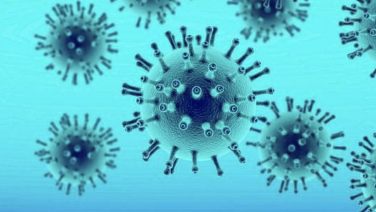
Monthly IV Drip Deals in Bali (June 2025)
June has arrived, and so have two wallet-friendly ways to fuel your Bali adventures without skimping on wellness. Whether you’re
Picture this: You’re in Bali, living your best life. The sun’s shining, the waves are perfect, and you’ve just snapped the most Instagram-worthy shot of your coconut drink. Life is good!
But then…
Your stomach starts to churn, and suddenly, your tropical paradise has a new main attraction: the bathroom. Welcome to the world of Bali Belly!
It’s the uninvited guest at your vacation party, the unexpected twist in your travel story. But don’t worry, adventurous traveler! Before you start planning your day around bathroom breaks, let’s dive into what this tummy trouble is all about.
What is Bali Belly? How do you know if it’s affecting your island getaway? And most importantly, how can you deal with it quickly to get back to enjoying your holiday?
Join us as we explore the symptoms of Bali Belly. By the end, you’ll be equipped with the knowledge to handle this common travel issue and reclaim your spot on the beach!
Bali Belly is just a fancy name for what’s basically a bad stomach bug that tourists often get when they visit Bali. It’s usually caused by eating food or drinking water that’s got some nasty bacteria, viruses, or even parasites in it. These germs aren’t a big deal to the locals, who are used to them, but they can knock tourists out of action for a few days.
The symptoms of Bali Belly can hit pretty fast, sometimes just a few hours after you’ve eaten something questionable. Here’s what to look out for:

Bali Belly isn’t something that sticks around for too long. Most people find that the worst of it is over in 1 to 3 days, but it can sometimes drag on for up to a week. It all depends on how your body handles the infection and how quickly you start taking care of yourself.
The key is to stay hydrated and rest as much as possible. If you’re still feeling rough after a week, it’s time to see a doctor to make sure there’s nothing more serious going on.
A lot of people worry about whether Bali Belly is contagious, especially if they’re traveling with others. The good news is that Bali Belly itself isn’t something you can catch from someone else, like the flu. However, the germs that cause it can spread through food, water, or even surfaces that haven’t been cleaned properly. So, while you might not catch it directly from another person, you can still pick up the germs that cause it.
It might be the last thing you feel like doing, but yes, you should keep eating—just be smart about what you eat. Stick to bland, easy-to-digest foods like toast, rice, bananas, and applesauce. These won’t irritate your stomach as much and can help keep your energy up.

When you’re dealing with Bali Belly, you probably just want to know how to get better as quickly as possible. Here’s what you can do to speed up your recovery:

Technically, Bali Belly itself isn’t contagious, but the germs that cause it can be. If someone with Bali Belly doesn’t wash their hands properly after using the bathroom, they could spread the germs to surfaces, food, or water. To prevent this, make sure you’re practicing good hygiene—wash your hands thoroughly with soap and water, especially after going to the bathroom and before eating.
You might have heard that drinking Coke can help settle an upset stomach. While there’s some truth to this—Coke has sugar, which can give you a bit of energy, and the bubbles might help with nausea—it’s not a cure. Plus, the caffeine in Coke can actually make dehydration worse. If you do drink Coke, make sure it’s in addition to plenty of water and not your main source of fluids.
The best way to deal with Bali Belly is to avoid getting it in the first place. Here’s how you can reduce your risk:
Even after the worst of Bali Belly is over, your gut might still feel off. Here’s how to get it back to normal:
If you’re experiencing diarrhea, stomach cramps, nausea, or vomiting, there’s a good chance you’ve got Bali Belly. These symptoms usually start within a few hours to a couple of days after consuming contaminated food or water.
Most cases of Bali Belly last between 1 to 3 days, but it can sometimes stick around for up to a week. If your symptoms persist longer than that, it’s a good idea to see a doctor. Book a consultation with Trishnanda Care Centre to get expert advice and treatment.
The best way to heal Bali Belly is to stay hydrated, eat bland foods, and get plenty of rest. Over-the-counter medications like Imodium or activated charcoal can also help with symptoms. For severe cases, consider IV Therapy to rehydrate quickly.
While Bali Belly itself isn’t contagious, the germs that cause it can be spread through contaminated food, water, or surfaces. Practicing good hygiene is key to preventing the spread.
Yes, but stick to bland, easy-to-digest foods like rice, toast, and bananas. Avoid spicy, greasy, or dairy-rich foods until you’re feeling better.
Coke can help with nausea, but it’s not a cure. It’s important to drink plenty of water and not rely on Coke as your main source of fluids.
Yes, Bali Belly is very similar to Montezuma’s Revenge, which is another term for traveler’s diarrhea that people often get in Mexico. Both are caused by consuming contaminated food or water, and both have similar symptoms like diarrhea, stomach cramps, and nausea.
In most cases, Bali Belly is just a short-term illness that clears up on its own. However, if you’re experiencing severe symptoms like high fever, blood in your stool, or symptoms lasting more than a week, it’s important to seek medical help. These could be signs of a more serious infection that needs treatment. You can book a Doctor On Call with Trishnanda Care Centre to get checked out without having to leave your accommodation.
Consider packing hand sanitizer, probiotics, charcoal tablets, and rehydration salts. These can help you prevent and manage Bali Belly if it strikes during your trip.

June has arrived, and so have two wallet-friendly ways to fuel your Bali adventures without skimping on wellness. Whether you’re

Bali may be paradise, but even paradise has microbes, mosquitoes, and merciless sun. Whether you’re a first-time backpacker, a seasoned
Contact Our Doctor Now